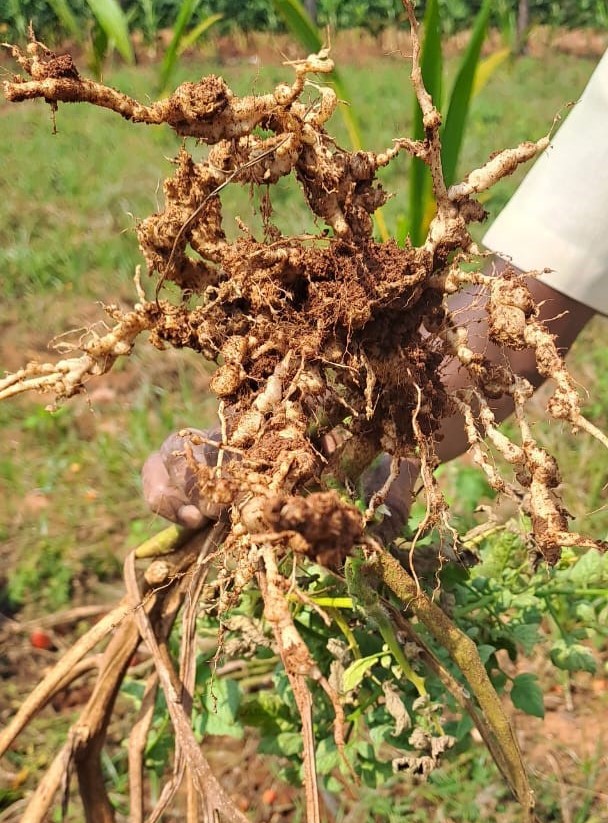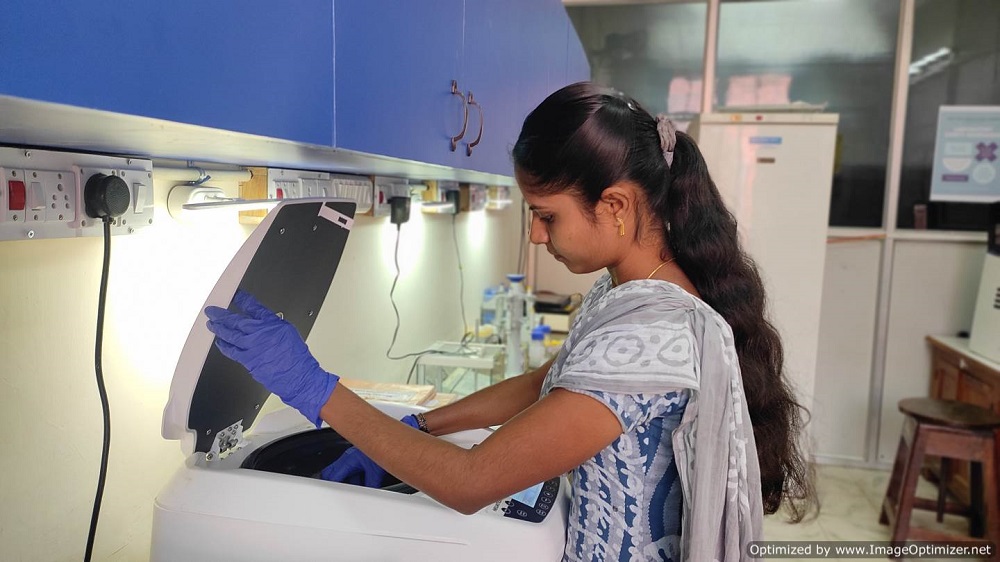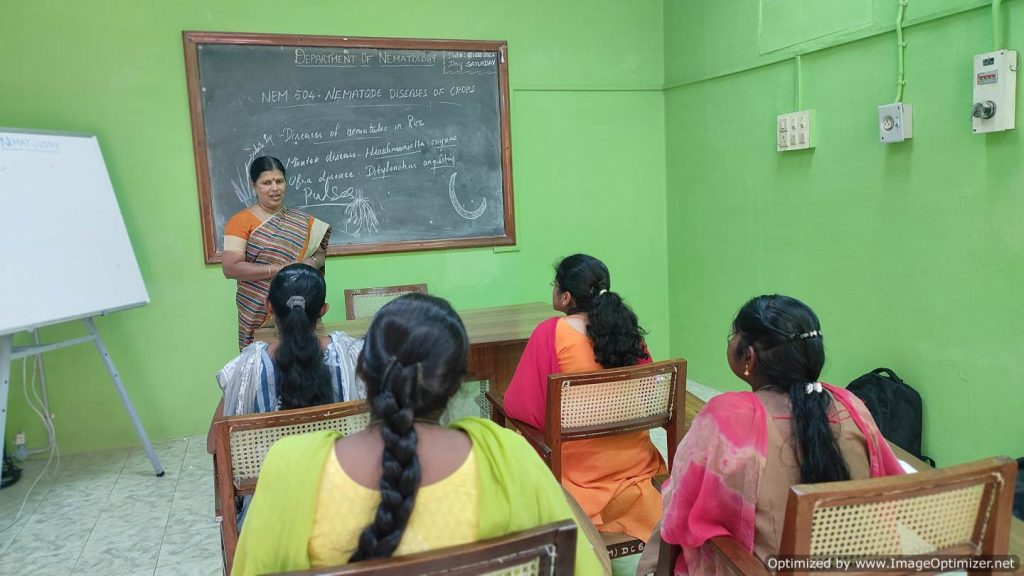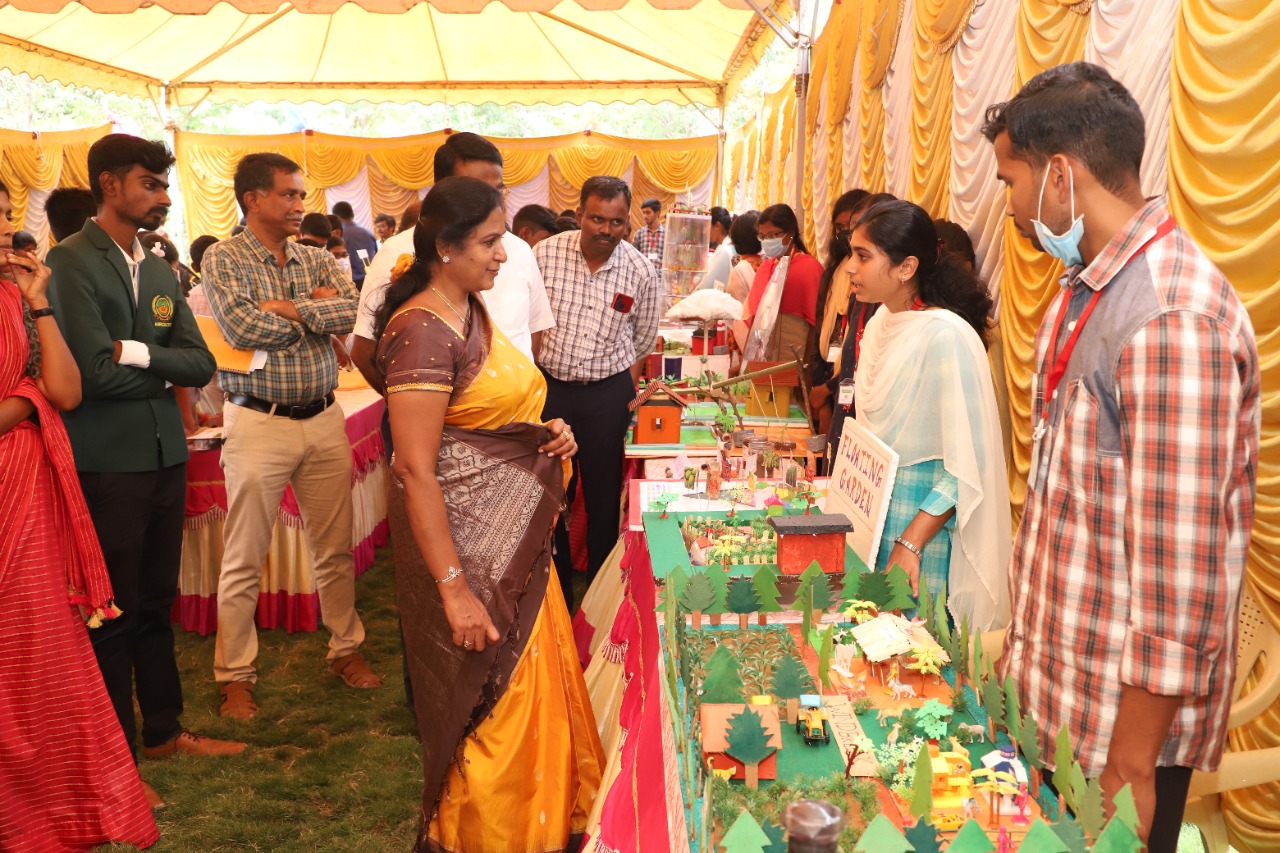The Tamil Nadu Agricultural University (TNAU) had its genesis from establishment of an Agricultural School at Saidapet, Madras, Tamil Nadu, as early as 1868 and it was later relocated at Coimbatore.
Get in touch
- info@tnau.ac.in
- 0422 6611200
- Monday to Friday: 9am to 5pm

M.Sc. (Ag.) Nematology
Prelude
Nematology is the scientific subject that deals with nematodes or roundworms. Nematodes are well-known plant and animal parasites that cause massive crop losses and devastating diseases in humans and livestock. Certain species, on the other hand, are extremely effective in biocontrol programs, with some even being used as a primary pest control strategy. In addition, wild species served as bioindicators for environmental monitoring, while others served as very insightful model organisms.
Tamil Nadu is the first state in the country to realize the importance of nematodes and establish first laboratory in 1961 at TNAU Coimbatore. Later in 1979 separate Department of Nematology was established and PG programme was started. TNAU offers a two-year full-time Masters programme. The course must also be completed within two years.

Why this programme?
- Through understanding the relationship between plant and plant parasitic nematodes.
- To have advance knowledge on fundamental nematode biology.
- To reduce the impact of nematode on Agriculture and Horticulture through biological control
Study Programme
The Masters programme in Nematology has been designed following the UGC guidelines. The course imparts:
- To impart quality education to students
- To develop technologies for the management of nematodes
- To study biodiversity and host interactions of nematodes
- To develop eco friendly management practices for pests using entomopathogenic nematodes
- To develop Integrated Nematode Management Module suitable for different crops

Colleges offering
The master programme in M.Sc. (Ag.) in Nematology is offer only by the Department of Nematology in Coimbatore campus.
Application and Admission
Interested in taking part in the programme of Nematology? Find out more about the specific Admission requirements and the application procedures. If you doubt whether admission is possible, feel welcome to apply online. The Admission Committee will check your admissibility.
Future Career
Several of our Graduates are recruited as Assistant professors in many colleges. Many people work on research and development projects at many global corporations to create novel nematicides compounds.
Master’s in Nematology course
Master Courses
After admission the students undergo a set of courses that help them understand the basics of Taxonomy, Biology, Ecology and Nematode disease of crops, Molecular biology and Management as per the Choice Based Credit System (CBCS) with a total credit load of 55 credits, of which 20 credits are exclusively earmarked for their Thesis
Research.
Master’s thesis research
After completing the courses in the first year, the students will initiate their thesis research. Each student will be assigned to an experienced faculty, approved by the Dean of School of Post-Graduate Studies, who would guide the student on his/ her choice of research topic
Student Experiences

I feel like I’m constantly learning new things. I have acquired a wide range of knowledge about nematodes and their management. The content is so interesting.
Deekshana T
II M.Sc

You don’t have to have a specific idea of what part of nematology you’re learning, you just take it as it comes and you can take very different paths within a course of study. You may find that you enjoy different things than you thought!
Priyadharshini V
II M.Sc
Student Alumni Experiences

I made great friends in my course, you get to know the people well. Learning nematology in TNAU provides numerical and analytical skills that can be applied to any problem and perspectives on nematode management. I learned many practical skills in Nematology that were really useful for my present career.
Logaraj
M.Sc Nematology

I often came here to the nematology department to find out about the current situation of the nematode problems. it just felt like home. One of the great things about Department is that you can freely talk to the staff and gain knowledge of all aspects.
Vikram N
Resarch &Development officer, United Phosphorus Limited Ltd, Mumbai.

